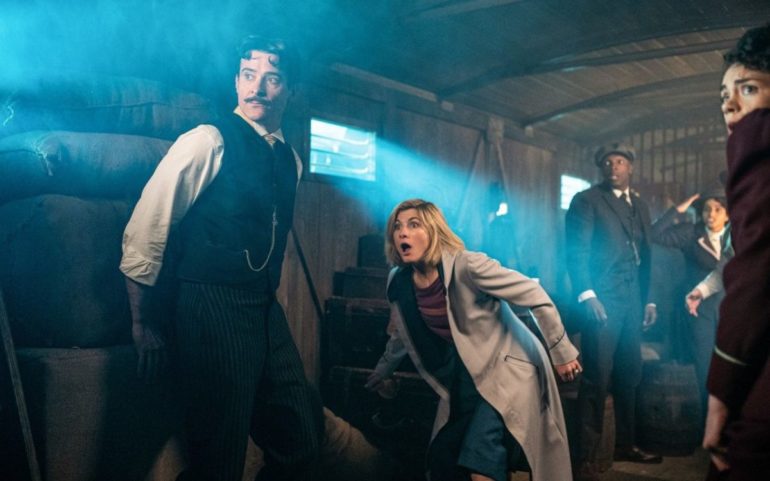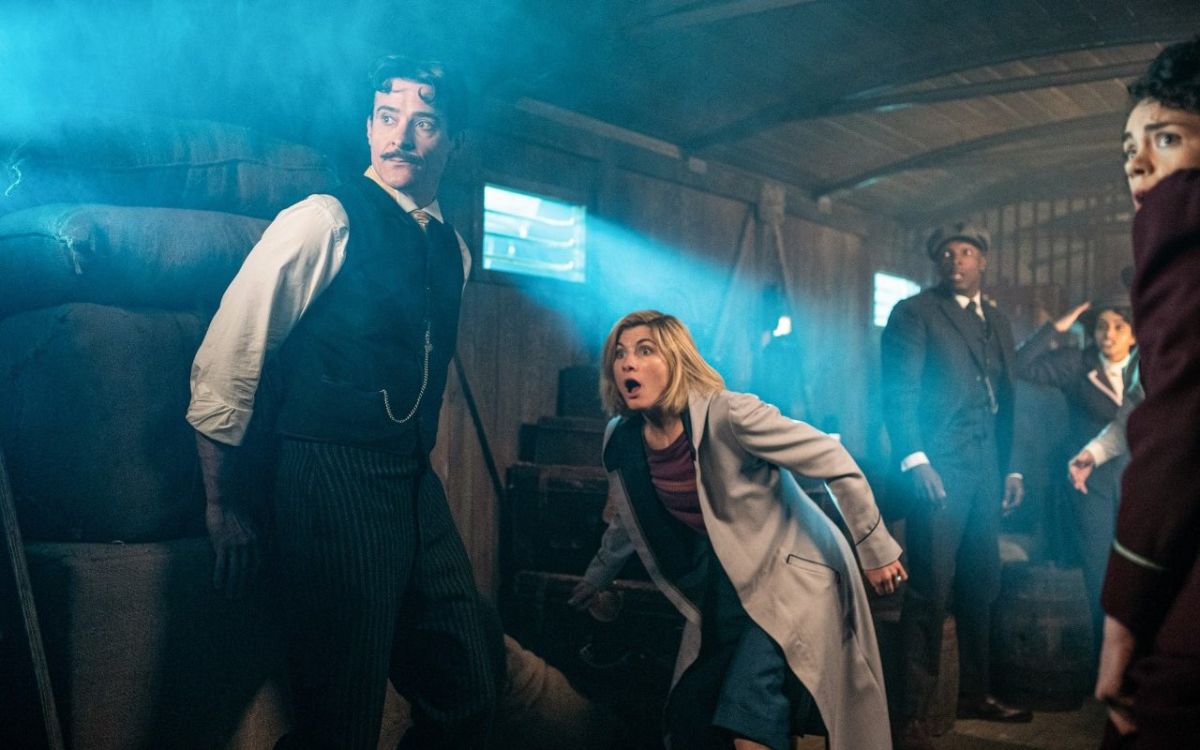If the current iteration of Doctor Who has one big strength, it’s the way it approaches real-life history. By far the two best episodes of Whittaker’s first season were ‘Rosa’ and ‘Demons of the Punjab’, both of which were very much a return to the kind of stuff Doctor Who did in the 1960s – eschewing the more outlandish sci-fi stuff for more straightforward historical drama.
In a season bereft of any serious character development or imaginative plotting, these two episodes’ vivid recreations of the tragedies surrounding Segregation and Partition were easily the most vivid and emotionally gripping stuff to come out of the season. Not only this, they were genuinely educational. While most people probably know the key aspects of the story of Rosa Parks, ‘The Demons of the Punjab’ was a revelation if only because of largely unknown the Partition of India is to most British people. That’s colonial guilt for you.
Of course, this kind of storytelling was dropped around four years into the show’s original run, since it quickly became clear that wackier romps with the Daleks and other rubbery monsters were far more popular with kids than ersatz history lectures. As a result, most journeys into the past for the show tend to incorporate some kind of monster or sci-fi element. While this can often result in brilliant stories such as 2007’s ‘The Family of Blood’, which managed to reflect on the time it was set in while telling a really good science fiction story, it can also have the effect of simply dragging down the story they could have told had they stayed purely historical. This is largely true of Doctor Who’s most recent episode, ‘Nikola Tesla’s Night of Terror’.
There’s some really good stuff in this. In fact, most of the first half of the episode is great. While it all revolves around the weird flying sphere that gets the Doctor involved, most of the episodes first half is spent simply introducing us to the figure of Tesla and the period in which he lived. The explanations of who he was, of how ahead of his time he was, his rivalry with Thomas Edison, and just how little the companions (i.e. people nowadays) know who he was is really engaging.
The actor playing Tesla, Goran Višnjić, really sells both the man’s intelligence and his frustration with the people around him, and the episode does a great job at building the world around him. Robert Glenister’s Edison also impresses – an antagonist who isn’t really a villain so much as he is simply the counter-argument to Tesla’s ideas. Unlike last week’s ‘Orphan 55’, ‘Nikola Tesla’s Night of Terror’ is an episode that avoids being too preachy, and simply explores the real history behind these figures. As a result, this first half feels very grounded – even with creepy Electro-like guys going around killing people.
But then the aliens show up, and they instantly just detract from everything the episode was doing well up to this point. Whereas last week’s creatures boasted a really good, believable design, the ones that show up in this episode are as cheap-looking and CBBC-style as the show gets. Like a few too many other Doctor Whos from years past, the main baddy here is literally just an actress with a big head, and as such fails to provide any real sense of menace or tension.
As for their plan – it’s just nonsensical, even by this season’s tenuous standards. The basic premise is that they’ve chosen Tesla to be the engineer on their ship because of his genius. This is the whole point of the episode of course, to focus on his exceptionalism. Nevertheless, it beggars belief that a species who can travel in space or destroy whole planets would seek the help of someone in the late 1800s who’s just working at using electricity for lighting and communication. There’s an off-hand line of dialogue stating how they only ever ‘steal’ instead of build, but this is the only justification we’re given.
There is still some good stuff in the second half of ‘Nikola Tesla’s Night of Terror’. It continues to maintain the fast pace and energy that the new season has had so far, and the scenes where Yaz and Edison are being chased by huge, monstrous scorpions through the streets are really impressive – if only from a visual and technical standpoint. This season continues to be as good as the show ever has been in terms of production design. The HD is crisp and the special effects are all amazing (with the exception of the aforementioned Queen, who is just an actress with some dodgy prosthetics), the CGI is incredibly well done.
But no matter how good something might look, the plot is key, and there’s barely any to speak of after the halfway mark. It’s interesting seeing all the various characters being given different stuff to do, and Yaz seems to be being utilised more this season, but once you know what the villains are up to, it’s basically just killing time until the end. The revelation that this species are a hive mind, and that therefore killing the Queen will somehow kill them is just a rip off of so many movies featuring armies being defeated by a single stroke, from ‘The Avengers’ to ‘Star Wars’ – and it was a lazy cop with them.
‘Nikola Tesla’s Night of Terror’ is clearly trying to go for a similar feel as 2010’s ‘Vincent and the Doctor’, which deftly interwove a plot revolving an invisible monster with the tragic real-life story of Vincent Van Gogh – the artist who suffered from depression, was thought of as mad, and ultimately killed himself. But there’s two major differences. Firstly, the creature in ‘Vincent and the Doctor’, a creature only he can see, is intrinsically linked to the themes that story was telling, whereas here it’s just a non-specific monster-of-the-week that could have shown up in any episode.
Furthermore, the monster in ‘Vincent and the Doctor’ was largely secondary, with the episode primarily focusing on the artist’s struggles with depression and his worries that he would not be remembered. Tesla may have died far poorer than he had any right to be considering everything he came up with, but ultimately it is not nearly so tragic a tale. Even so, this would not have been an issue had his story been given the proper focus. But, as I say, this story is still too bogged down by the show’s usual tropes to be anything more than another monster-of-the-week episode.
All in all, ‘Nikola Tesla’s Night of Terror’ is an episode which does attempt some really noteworthy stuff. Like ‘Demons of the Punjab’ it’s a period piece which attempts to educate the viewer on a figure most people probably aren’t familiar with. But, since it is Doctor Who, some incredibly generic villains are also thrust in there, and the resultant ‘save the world’ plot only serves to drag it down.
Some of the coverage you find on Cultured Vultures contains affiliate links, which provide us with small commissions based on purchases made from visiting our site.


